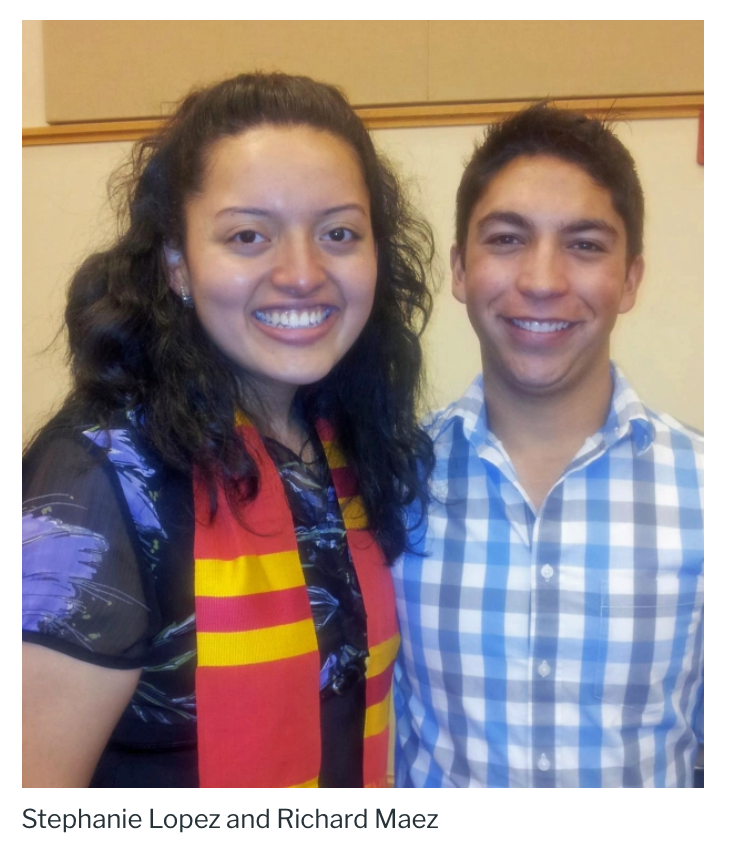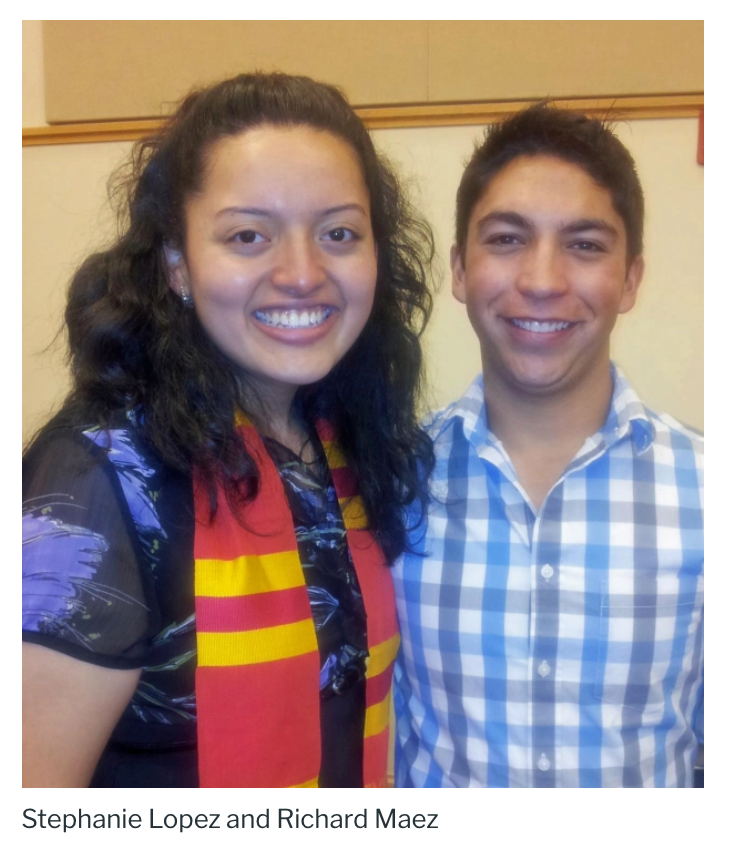By: Richard Maez & Stephanie Lopez on Mar 2, 2021 from The Colorado Sun

We are proud graduates of Denver’s Kennedy and East high schools. Our families have attended Denver Public Schools as well and we have younger kin still in the system. Our time as students in DPS was valuable, in both positive and negative ways. We thought we’d received a great education, until we went to college.
It was then that we realized that high school missed an important aspect to living, working, and interacting in American society: The introduction to and ability to develop cultural competence. Our history courses did not provide a comprehensive curriculum that reflected the stories of our community and other communities in this nation.
In the fourth grade, we learned about our state bird. In the seventh grade we learned about the pharaoh Tutankhamun. Tenth grade was spent exploring the Roman Empire, and in 12th grade we spent a week discussing the Mexican Revolution.
Stephanie Lopez and Richard Maez
It wasn’t until college that we were able to take courses exploring race and ethnicity and its impact in the United States. Math, science, history and English are important, but so is the ability to reflect on your identity, learn about the nuanced history of racial interactions, and be able to disrupt systems that lead to inequity.
Today we are both members of Ednium: The Alumni Collective, a new group that taps the experience of DPS alumni for insights on what was missing from our education in order to ensure every graduate going forward has the skills needed to achieve success.
We’re now working on an initiative calling for every student to engage with Cultural and Ethnic Studies before graduating from DPS.
Through conversations with current students, it’s clear there is still a need for a comprehensive curriculum that supports learning about all communities that have formed and continue to form our history. It is important for our students to see themselves in school curriculum and learn about others as we continue to grow as a diverse nation.
A Cultural and Ethnic Studies curriculum can provide the space for students to see themselves as well as space to have real conversations about race and how our stories intertwine.
Many will say high school students are not ready for conversations around Cultural and Ethnic Studies. We disagree, and the DPS Board of Education has shown it’s on the same page by passing the Know Justice Know Peace resolution last October. The resolution calls for all DPS schools to “include comprehensive historical and contemporary contributions (of) Black, Indigenous, and Latino communities” in curriculum.
Ednium wants to take this movement further. We believe students are not only willing and able to engage in these critical conversations, but also that they want to be able to learn about issues of race and ethnicity so that they can unlearn any stereotypes and prejudice that society has placed on them.
More than just integrating cultural relevance throughout our curriculum, a dedicated Ethnic Studies course explores issues of racial and ethnic identity, racism and discrimination, and stereotyping and prejudice in the United States. Not only would students explore these issues, but they also will learn how each of these pervade into our everyday life, from politics to the economy and even in our educational institutions.
Evidence shows that culturally relevant pedagogy and specific Ethnic Studies courses can have a positive effect on GPA and attendance, especially with students who are “at risk” of not graduating.
An Ethnic Studies course also provides knowledge and skills that help all graduates succeed in life. Regardless of students’ ethnic background, most employers, universities, and society in general value cultural competence, anti-racism, and critical thinking skills for people of all backgrounds. This makes Cultural and Ethnic Studies an important piece of the high school experience.
We ask that the DPS Board of Education, along with district administrators, work in partnership with students, families, community organizations, teachers and school leaders to add Cultural and Ethnic Studies as a graduation requirement. We are excited to see the Know Justice Know Peace resolution and feel that it has provided us the opportunity to have these types of discussions. We see Cultural and Ethnic Studies as complementary to implementing the vision of that resolution.
In an increasingly globalized and complex society, it is more important than ever for our students to engage in these conversations so that we can create a more just world for all.
Richard Maez is International Baccalaureate Diploma Program Manager at George Washington High School and a graduate of John F. Kennedy High School. Stephanie Lopez is a College Success Program Manager at the Denver Scholarship Foundation, and a graduate of East High School.
The Colorado Sun is a nonpartisan news organization, and the opinions of columnists and editorial writers do not reflect the opinions of the newsroom. Read our ethics policy for more on The Sun’s opinion policy and submit columns, suggested writers and more to opinion@coloradosun.com.
-1.png?width=1150&height=352&name=Ednium%20Email%20(2)-1.png)


Comments